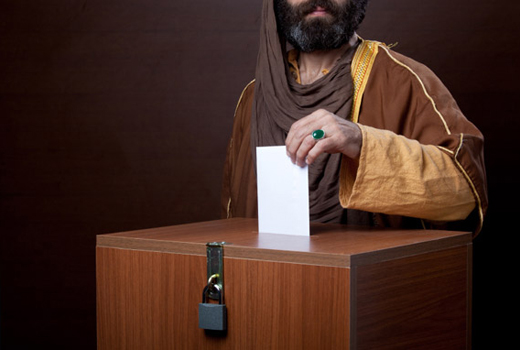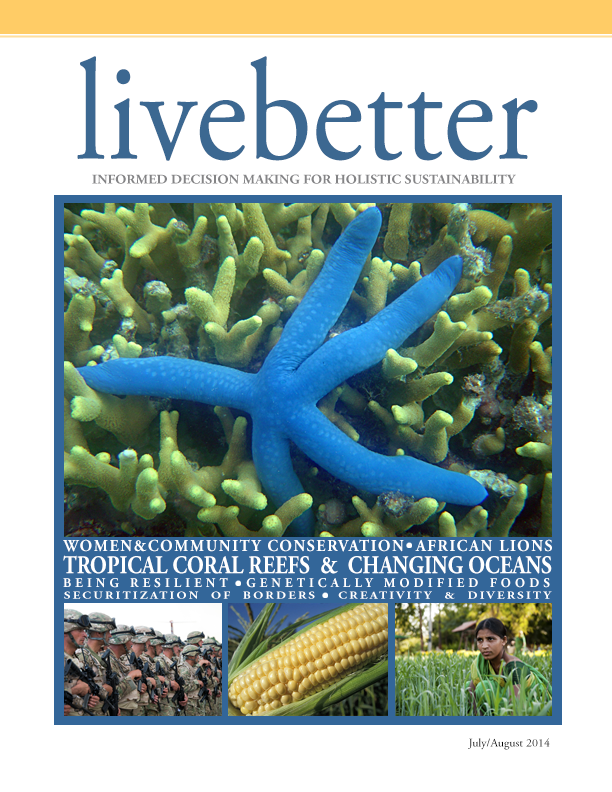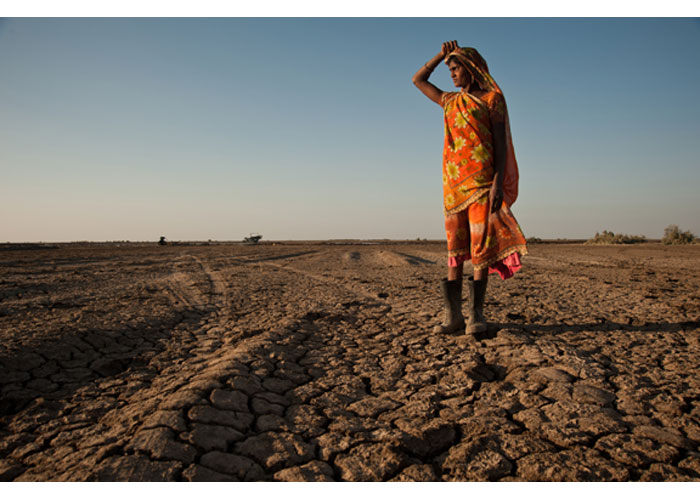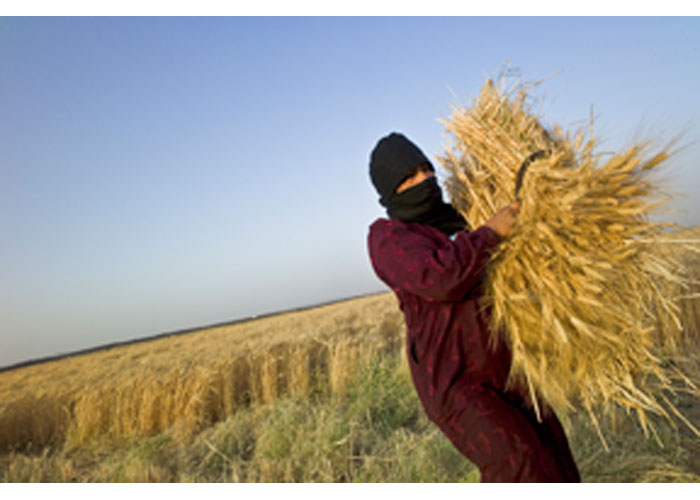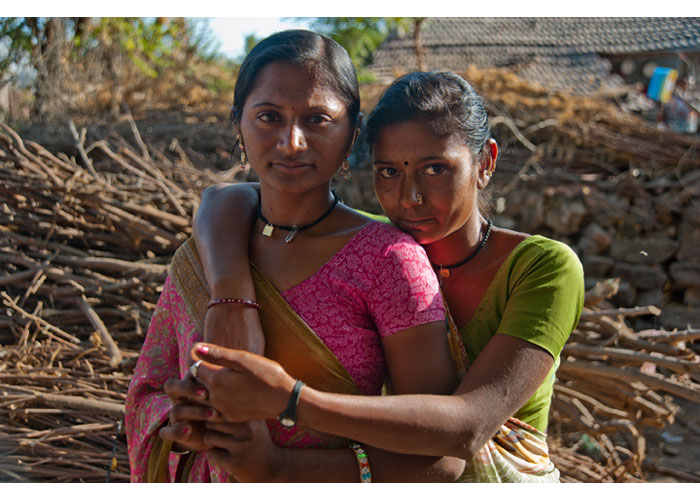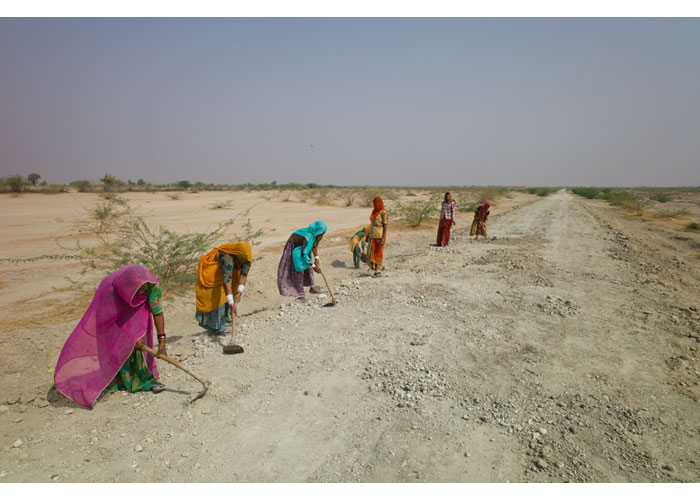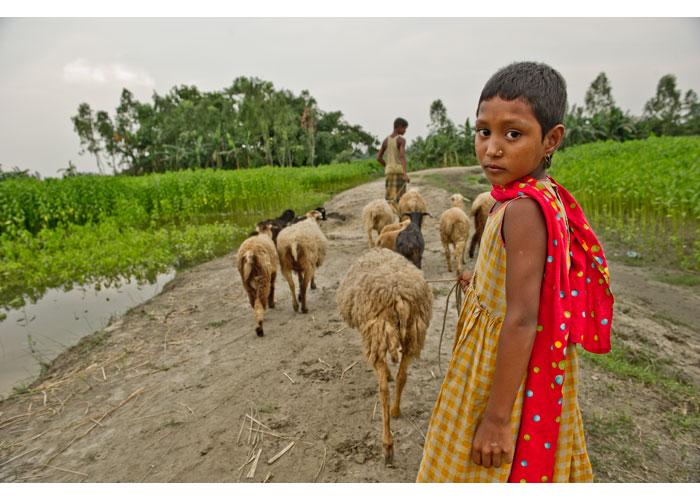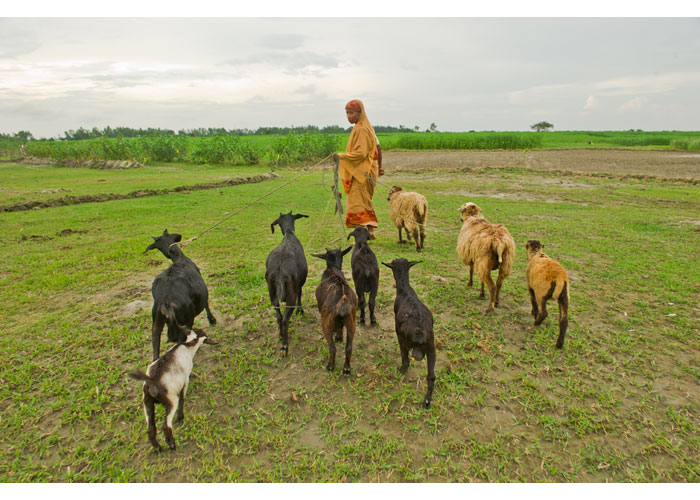Islam and Democracy: A Contradiction of Terms?
In August 2011, the Al Jazeera Centre for Studies organized a seminar, “Islamists and Arab Revolutions: Challenges of Democratic Transition and Rebuilding the State,” in Doha, the capital city of Qatar, with positive participation by a number of researchers, experts and leaders of Islamic movements from various parts of the Arab world. In the closing day of the two-day seminar, one prominent leader of the Muslim Brotherhood (MB) presented the group’s Nahda (Renaissance) Project, answered participants’ questions regarding implementation mechanisms and talked about five major initiatives featured in Nahda Project. These initiatives aim to build a modern state by focusing on human development projects and programs. Nahda Project also aims to assist in the transitional phase as it offers mechanisms for reforms and an integrated initiative to fight corruption, to rebuild parliament and to rejuvenate state institutions.
The MB leader said Nahda Project’s essential components are political will, a clear vision, popular enthusiasm for the idea and a parallel environmental project. He reiterated that although the Muslim Brotherhood has a clear vision in this regard, the group will not impose this vision on the Egyptian people. He also added that Nahda Project is ready but requires further discussion and consensus. This shows Islamists as chiefly preoccupied with the ideas of development, renaissance, rejuvenation and preparation of a project to rebuild, to modernize and to revitalize the state. It also shows Islamists making this a developmental and societal mission based on popular accord and citizens’ interests. Both of these factors should have gone some way to show Islamists are advocates of modernization and revitalization of the political system, and development and activation of the economic system as well as dialoguing and networking with political forces to create a new and different reality and better future.
Senior leadership of Islamic movements (including the Muslim Brotherhood) are busy with such visions of real, comprehensive renaissance and development rather than futile intellectual, cultural and ideological confrontation. This should have been welcomed as a gateway for the long-awaited reconciliation between Islam and the West, Islam and democracy, Islam and modernity, Islam and the New World community-at-large, which has truly become but a small village. This should have been welcomed as an opportunity to serve common interests and interdependence, and to open channels of dialogue and cooperation. But reactions in the West to the presence of Islamists in the political scene and the end of the era of repression and authoritarian rule were mixed.
Strong resistance to the idea of accepting Islamists as democrats seems to exist in many circles in both the West and the Arab world. In the West, the thinking may be that it is easier and better for certain conservative, skeptical, Euro-centrist or American-supremacist circles to hold that all Muslims are either Osama bin Laden, peasants, oil-rich or practicing their Bedouin primitive culture in the desert, or they all hate the West because they stand against civilization and modernity.
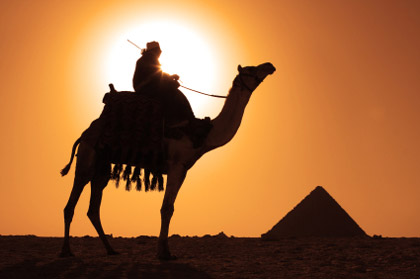
© iStockphoto.com/sculpies |A Bedouin at a pyramid.
This kind of thinking is quite popular in American and European conservative or even racist circles. It resists calls for the democratization of the Arab and Muslim world, and it fails to appreciate the embracing of democracy, freedoms and human rights by Islamists. This kind of ideology became even more confusing and problematic after the Arab revolutions. A great debate started about America and the West’s position with regard to Arab revolutions. Some Westerners tried to blame those who supported peoples’ uprisings and revolutions against the dictatorships that ruled them with Western backing and blessings for the deposed dictators.
Such discourse ignores the principles of freedom, democracy and human rights, which are supposed to be essential and absolute in the Western model. It also ignores that the continuation of dictatorship rule in the world – no matter how much support it gets from major powers – is a thing of the past and has no place in the world of the 21st Century. More important, supporting dictatorships was creating ever more radical anti-West Islamist groups and movements. Such support by certain western intellectual and political leaders for vestiges of overthrown dictatorships leads to more calls amid Salafists and radical Islamists to condemn the West.
This type of behavior is seen by many as the West contradicting itself. In the first place, an inherent contradiction exists between western calls for democracy and freedoms on the one hand and its support for dictatorships on the other. Secondly, the contradiction of official positions comes into play – claiming to support freedom around the world and peoples’ revolutions to ensure those personal freedoms while at the same time providing support for counter-revolutions. This has occurred in several countries where, although the people erupted in revolution against dictatorships, the West made clear attempts to restore old repressive regimes. Such situations have, of course, increased the West’s difficulties in dealing with Islamists due to conflicting messages coming from the West to each Arab political arena – especially the Egyptian one.
Many have seen messages welcoming the revolutions and claiming support for them. However, many have also seen other messages warning against popular revolutions that move with the peoples’ will towards fulfilling personal freedoms and choices, which do not coincide with the interests of the United States or the West at-large. Of course, the West extended an especially warm welcome for all the roles played by the liberal elites in the Arab world, with varying degrees of reservation regarding the rest of the players and stakeholders – Islamists in particular.
Extremism: A Reality on Both Sides
The general atmosphere of tension and anxiety, the lack of agreement on the general principle, and the failure to set basic values, which cannot be bypassed when engaging political issues, had to lead to extremism on both sides. Undeniable bigotry and a growing radicalization exists in certain circles in the West against Islam and Islamists, and also against the idea of allowing Muslim peoples to move forth in the direction of modernity and democracy, freedoms and human rights. Moreover, there is an attendant severe insistence that these peoples cannot understand, accommodate or incorporate these universal human values in their cultural and moral framework.
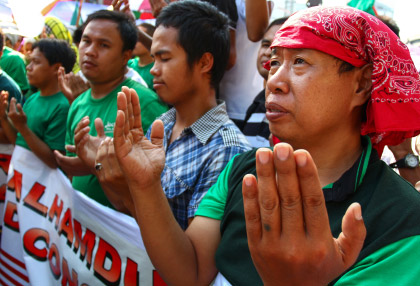
© iStockphoto.com/h3k27 | Filipino Muslims join a peace rally as a peace pact is signed between the Philippine government and secessionist Moro Islamic Liberation Front, the largest Muslim insurgency in Mindanao.
This situation invariably supports every conceivable racist extremist idea on the basis of ideological, religious or ethnic grounds against Muslim peoples. It also motivates lobbyists and pressure groups, and sometimes even civil society movements, against Arab revolutions in general and against the presence of Islamists in particular. This escalating position in the West evidently leads some Arabs to recall the heritage of Western colonialism in the Muslim world with all its troublesome aspects – especially cultural ones. It reminds them of the history of confrontation with the West in the colonial era, then in the so-called era of neo-colonialism and dependency, leading to the “clash of civilizations” idea that Samuel Huntington thought was inevitable in the course of the relationship between East and West.
Islamists & Foreign Relations: Important New Elements
Going back to the Al Jazeera seminar in Doha, and its handling of the issue of new positions and attitudes of Islamists on foreign relations, it is important to emphasize important new elements that have emerged for the first time. For example, Azzam Tamimi, PhD and Chairman of Alhiwar satellite TV channel, touched on the Arab-Israeli conflict. He said humanitarian and political factors complicated the dialogue, especially since many believe the conflict was not religious but a product of western colonialism. He did not overlook the fact that the founders of the Zionist project were Jews, although he believes most were not religious. He stressed that the arrival of Islamists to power poses an important question with regard to Israel: how to deal with a reality on the ground and existing agreements, such as the Camp David Accords?
Tamimi mentioned the Arab Spring put both Israel and its allies and Islamists – especially Hamas – in trouble, and he calls for a long-term truce with the Jewish state, thus acknowledging the reality as it stands without recognizing its legitimacy. He also calls for a conscious search for mechanisms to address the status quo. Meanwhile, several new discourses emerged on this issue like that presented by Ali Bayanouni, the Comptroller-General of the Syrian Brotherhood’s Political Affairs. In his speech, he addressed the relationship with the West and rising powers, and pointed out that establishment of a relationship with the West starts with moderate, enlightened Islamists. It should be based on terms of Islamic reference and belief in dialogue of civilizations with moderation and openness the way to reach the humanitarian common ground while preserving national identity and sovereignty.
The Syrian Islamist further expressed the values of justice, equality, freedom and dignity as being undoubtedly Islamic values with the history of Islam recording important relations with other nations. He noted Islamists now in power will build relationships with the West on the basis of international laws and norms in force in relations between peoples, nations and countries, adding that the West’s outlook on the Muslim world is still confined to stereotyped Arabs and Muslims.
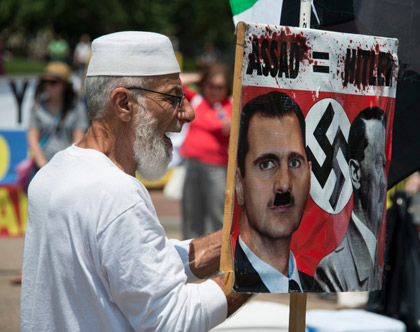
© iStockphoto.com/KeithBinns | A group of Free Syria activists protest for political reform in Syria on H Street North West in front of the White House in Washington DC.
In the same context, Bayanouni mentioned the West’s reluctance to recognize the right of the Syrian people to freedom and dignity under the pretext of fear for the future of minorities. This position does not take the suffering of the majority into account even though there is no fear for minorities in Syria since the Syrian people are well blessed with virtues of tolerance and peaceful coexistence of its various components.
Furthermore, Rahil Gharaibeh, leader of Jordan’s Muslim Brotherhood, discussed the theme “Islamists and International treaties,” which required a clear and direct approach. He defined the concept of a covenant or contract in Islam and highlighted a number of treaties in its history. Gharaibeh explained how Islam stressed the importance of upholding covenants so as to strengthen ties between nations and peoples. He said treaties should not be in breach of international law and should be transparent with declared terms and conditions. He further called for mechanisms and conditions for a reconsideration of such treaties to remove any inequality or injustice.
Bush & the Arab Revolutions: Advice to Americans
In May 2012 several U.S. news stories revealed that former U.S. President George W. Bush considered the Arab Spring that swept through Egypt, Tunisia and Libya to represent the greatest challenge to dictatorial regimes around the world since the fall of the Soviet Union. Bush said some people in the United States may feel intimidated about the impact and significance of changes occurring in Arab Spring countries, but he believes America must always stand on the side of freedom. The former President called on the U.S. not to fear the spread of freedom even if it was not sure of the political discourse that would be pursued in those Arab countries so recently liberated from repressive, authoritarian regimes. He further called on America to urgently help those Arab countries to implement democratic reforms firmly and strongly after revolutions broke out in order to prevent them from falling back to old dictators or sliding forward towards corruption.
The goal in reviewing comments from the U.S. president who led the “War on Terror” and who was the leader of the “Axis of Evil” concept – the man who said, “Whoever is not with the United States is against us” – is to illustrate the new situation in the Arab world, which cannot be ignored. It cannot be turned back, and it cannot be influenced so Arab peoples once again give up their freedom under fear of oppression by ruling dictatorships or pressure imposed by despots who forced them into poverty, ignorance and a backward way of life that failed to develop their nations.
The words of George W. Bush constitute a major shift from his previous position as President of the United States of America. For, although during his two terms as President he called for democracy in Egypt and the Arab world, his policies had no impact on the Mubarak regime or on any other Arab regime with regard to genuine democratic transformation. However, now his words have two important elements: The first is the huge realism with which he deals with changing circumstances and new forces emerging in the Arab world. The second is his approach, which speaks of democracy and human rights without any kind of “Arab exceptionalism.”
Fear of Arab revolutions and their deep changes in objectives, agenda priorities and decision-making style is not a good idea in the West, particularly in the U.S., because it leads to negative, counter-productive results.
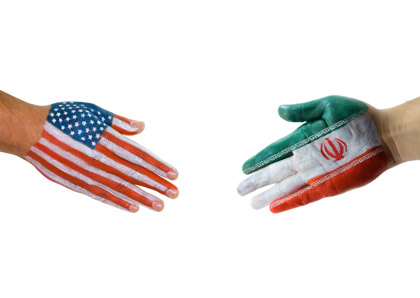
© iStockphoto.com/aytacbicer | An American and Iran handshake.
Allowing the idea of western – especially U.S. – fear of freedom or continuing revolution in the Arab world will necessarily lead America to deal nervously with new situations and new leaderships, to generate more distrust and to widen this gap even further. This could cause the United States to lose any possible understanding and dialogue with the Arab peoples – a dialogue that would be profoundly beneficial to all peoples of the world, a dialogue that could help move the world to a new era of security and peace.
It is in no one’s interest or benefit for the United States to lose its remaining credibility in the Arab world. Now is not the time for America itself to sow the seeds of anti-Americanism in the soil of a new Arab world, which is now more fertile for such ideas than ever before. Unfortunately, and regrettably, some within the United States are committed to such a goal and mission – to fuel a conflict with the peoples of the Arab world, thus putting the U.S. Administration in an embarrassing position as it tries to put out fires ignited by some fanatics (as in the case of the anti-Mohamed film). Now is the time for Arab and Western nations to work together diligently for the common good of all peoples.
Ikhwanization & Progress in Human-Needs Reform
As soon as the new national bloc – notably a President of the Arab Republic of Egypt that belonged to the Muslim Brotherhood, leaders of the Freedom and Justice Party and other independent leaders – reached positions of power, many voiced warnings of “Ikhwanization,” the Arabic word for “Brotherhoodization,” i.e. the Muslim Brotherhood taking control. Thus, many criticized popular changes for excluding known corrupt, old regime senior officials and leaders no longer acceptable in the post-revolution phase because they lacked vision for reform, rejuvenation and change in general. For some, this criticism was aimed at halting change and progress, and at keeping the old regime and its leaders in power. For others, this criticism was, and continues to be, a sign of misunderstanding and, possibly, fear – of Islamists and Islam within a nation in the midst of political turmoil and reform. However, history shows us that only when Christians, Muslims, Jews or others use religion as a catalyst for power politics and human repression does it ignite catastrophic consequences on all sides.
Warnings of Ikhwanization or placing leaders of the Muslim Brotherhood or its political wing, the Freedom and Justice party (FJP), in executive and administrative positions within Egypt ignored the fact that President Morsi, government officials and the state apparatus were clearly, deliberately and strongly committed to transparency and inclusive participation, all within the most important framework of a commitment to efficiency – putting the right person in the right place. Change in Egypt requires removal of the old standards and legacy criteria used by the Mubarak regime, which looked for persons loyal to the regime, tolerant of corruption and active within the framework of ruling party special interests and business world collaborators.
As with a change in the U.S. presidential administration, Morsi and his new team moved forth in the service of public interest, whatever their own political and ideological orientations. Not unlike political parties in Western countries, the FJP party suggested names of many individuals for various government positions that were rejected by the Egyptian President.
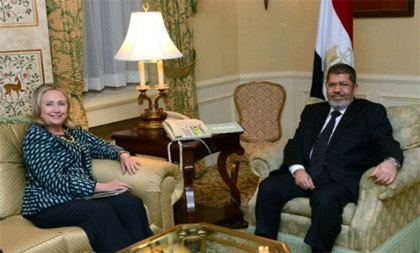
Photo Credit: State Department Secretary of State | Hillary Clinton meeting with Egyptian President Mohamed Morsi at the Waldorf Astoria Hotel.
This is clear and convincing evidence of Morsi paying greater attention to the validity of a person’s qualifications and his/her competence for the task to be performed than the sources recommending that person. In fact, after Morsi and several other leaders left the Muslim Brotherhood, the group started a phase of self-criticism, aiming for reconstruction, development of its discourse, activation of its drive to keep up with new variables and updating its approach in dealing with all the new circumstances on the ground. This created an objective reference for a new way forward.
The Nahda Project: Renaissance
Nahda Project is more than just an election platform. It is a comprehensive vision allowing for the integration and absorption of all reform and change efforts and interpretations with the aim of building a new and modern Egypt that leaves behind backward and bleak conditions inherited from the repressive regime of Hosni Mubarak. However, Nahda Project was targeted by critics with generic and vague criticism, which failed to identify points of disagreement for discussion toward improvement. Many believe the idea of the project itself was criticized not on any economic or developmental basis but out of a political and ideological desire to criticize the Muslim Brotherhood and to reject any idea or project, vision or program it presents, regardless of its benefit.
Similarly, the Morsi Administration found itself facing challenges created by escalation of cultural and intellectual differences between Islamists and secularists. These challenges masked the need for a clear focus on saving Egyptian society and its State from bleak and deteriorating conditions. Intellectual and ideological differences would have been better served in open discussion after the Administration addressed its citizens’ more dire human needs. Nevertheless, Egyptian society in its entirety was drawn into this confrontation with liberals and socialists stepping up their confrontations, with the Salafist movement in particular. They took the fight to every possible arena. The first of these was the Constituent Assembly tasked with drafting the new Constitution.
It is not clear whether the Muslim Brotherhood’s attempts to find reconciliation or to bridge gaps between the two sides were very successful. However, in conclusion, the Muslim Brotherhood wishes to emphasize the need for community reconciliation in the broadest extent possible, and the need to create a foundation and basis for a “consensual democracy” rather than a “competitive democracy” that could lead to numerous splits and divisions, which the current phase may not survive in Egypt.
So, can the world, and Egypt in particular, now move ahead toward acceptance of Islamists as democratic leaders? That is the question.
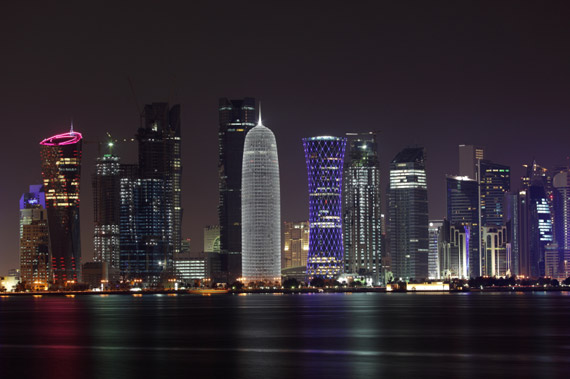
© iStockphoto.com/typhoonski | Doha skyline at night, Qatar, Middle East. Doha has been listed among the 2020 Global Sustainability Centers by the Ethisphere Institute.

